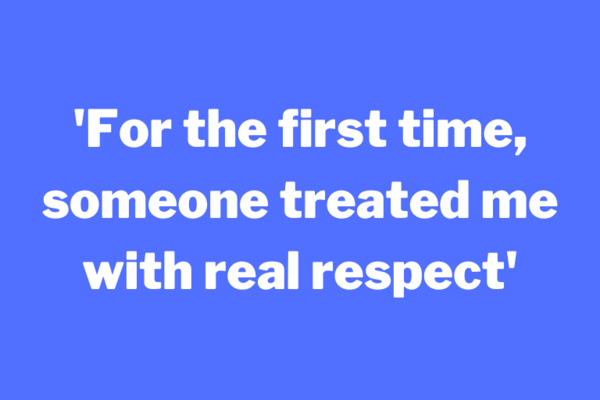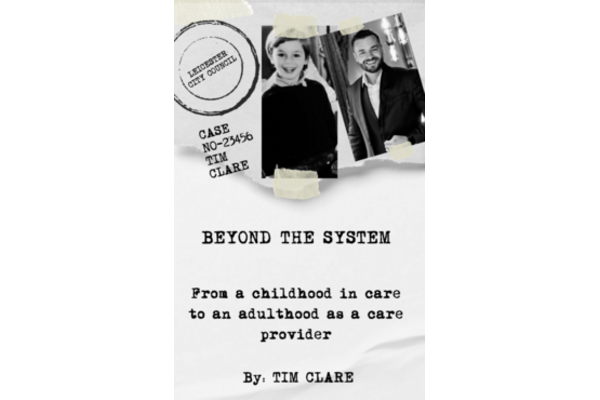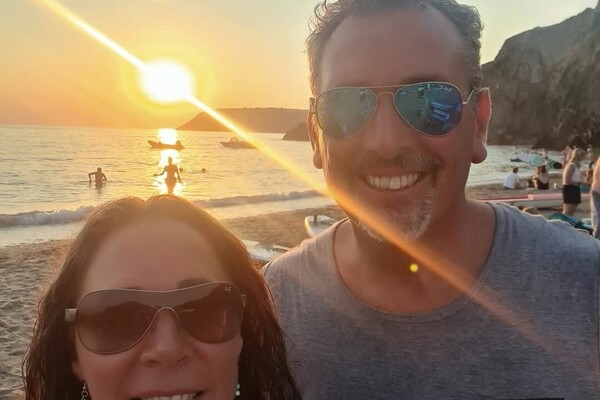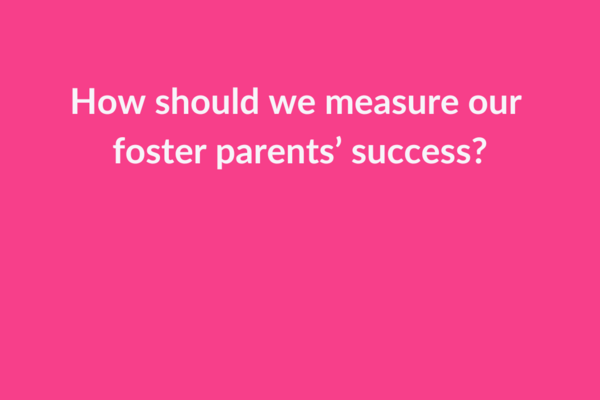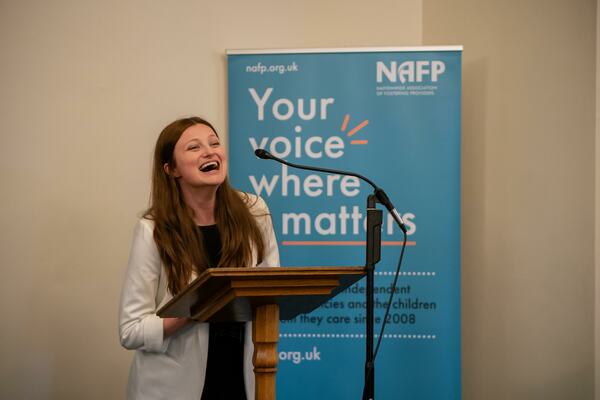The foster care system in today’s world is deeply broken, and it’s been going downhill for years. What was supposed to be a protective and nurturing environment for vulnerable children has become a system that too often adds to their trauma instead of healing it. Foster kids are thrown from one temporary home to another, expected to adapt to new families, schools, and rules over and over again, with no sense of consistency or stability. Many never experience what it feels like to be truly safe, loved, or wanted. They're treated like problems to be managed instead of people to be cared for. And when their pain and trauma show up in the form of behaviour issues, they’re labeled as “troubled” or “damaged,” when in reality, they’re just hurting.
It’s a system that acts like a conveyor belt—kids go in, get passed around, and come out the other end with very little support or preparation for the real world. Caseworkers are stretched impossibly thin, juggling dozens of cases at once, and as a result, crucial signs of abuse, neglect, or mental health crises are missed or ignored. Social services are supposed to be the safety net, but more often than not, they fail to catch the kids who need them most. And once these kids age out of the system—usually at 18—they’re expected to survive on their own with little to no life skills, financial support, or emotional guidance. It’s no surprise that so many end up homeless, or battling addiction. The foster system doesn’t set them up for success—it sets them up for failure. What makes it even more devastating is how invisible these kids become once they leave the system. There’s no public outcry, no media attention, no urgent call for reform—just silence. It’s as if once they age out, society collectively washes its hands of them. No one asks where they’re sleeping, if they’re eating, or how they’re coping. They vanish into a world that was never prepared to catch them. And for many, the only systems that do pay attention after foster care are the prison system, the emergency room, or the streets. It’s not because they’ve done something wrong—it’s because no one ever gave them the foundation to do something right. And let’s be honest—this isn’t just a policy failure, it’s a moral one. We are letting an entire group of children grow up feeling unwanted, unloved, and unsupported. When the state becomes your parent, that should mean something. It should mean protection, nurturing, consistency. Instead, for many foster youth, it means instability, neglect, and rejection. These kids are expected to be resilient beyond belief, to pick themselves up again and again while everything around them is falling apart. But even the strongest people can only carry so much alone. We shouldn’t be celebrating a few who "beat the odds"; we should be ashamed those odds were stacked against them in the first place. Until society stops treating these young people like temporary problems and starts treating them like permanent priorities, the cycle will never break.
Foster children are often treated like society’s throwaway rubbish—discarded when they become “too difficult,” forgotten when they need the most help, and judged for circumstances far beyond their control. They are seen as less-than, both within the system and by the public. People assume the worst about them, not realizing they’ve spent their whole lives trying to survive things most couldn’t imagine. The label of being a foster kid comes with a weight that’s hard to shake: people expect them to fail, and when they struggle, it’s treated like proof that they were never going to make it anyway. The system itself is a throwaway system—designed more to move kids along than to actually care for them. There’s little long-term investment in their futures, and even less emotional support along the way. When a child grows up believing they’re disposable, the damage runs deep.
And that damage doesn’t just go away—it follows them for the rest of their lives. When you’re constantly treated like you’re unwanted or unworthy, it seeps into how you see yourself. Many foster children grow up with deep-rooted feelings of shame, abandonment, and self-doubt. They question their worth, struggle to trust others, and often feel like love or stability is something meant for other people—not for them. This mindset, built from years of rejection and inconsistency, makes it incredibly hard for them to form healthy relationships, pursue education or careers confidently, or believe in a better future for themselves. And instead of offering support, society often reinforces that pain, labeling them as “broken” or “at-risk,” without ever acknowledging why they ended up in such a position in the first place.
What’s even more cruel is that when foster kids do try to speak out—about abuse, about neglect, about their needs—they’re often dismissed, ignored, or silenced. They're told to be grateful they’re not on the street, or that others have it worse. This invalidation teaches them to suppress their pain rather than process it, leading to bottled-up trauma that explodes later in life through anxiety, depression, anger, or addiction. And then when they finally break down, society shrugs and says, “See? That’s what foster kids are like.” It’s a vicious, heartbreaking cycle. These children aren’t born into failure—they’re pushed into it, shaped by a system that never gave them a real chance. They deserve more than the scraps of attention and care they’re given—they deserve to be seen, heard, and treated like they matter. Because they do.
And yet, these are some of the strongest, most resilient young people out there—not because the system helped them, but because they had no other choice. The tragedy is that their strength is a result of survival, not support. Every day, they face the world with scars that most people can’t see and challenges most never have to think about. But they are not broken—they’ve been failed. If we truly cared about these kids, we would be fighting harder for them. That means holding social services accountable, investing in proper mental health care, providing stable and loving placements, and—most importantly—listening to the voices of the youth who have lived through it. Until we stop treating foster kids like throwaway children and start seeing them as human beings worthy of love, care, and opportunity, this broken system will continue to fail the very people it was created to protect.
What’s even more painful is how predictable all of this is—how the same patterns repeat year after year, decade after decade, and still nothing changes. The stories are out there. Former foster youth have been shouting into the void for years, sharing their experiences, begging for reform, but their voices are often drowned out or ignored. It’s easier for society to look away than to confront the ugly truth that we are collectively failing these kids. Politicians make empty promises, funding gets cut or misused, and real, meaningful change rarely comes. Instead of being proactive, the system reacts too late—after the damage is done, after a life is already derailed.
And through it all, the blame somehow continues to fall on the children. When they lash out, when they drop out, when they run away or end up in trouble, no one stops to ask why. No one sees the years of instability, the missed therapy appointments, the cries for help that never got answered. They’re punished for the way they’ve learned to survive, not supported through it. This is the bitter reality for far too many foster youth. They are set up to fail and then shamed when they do. We can't keep acting like this is just the way it has to be. The system needs more than a bandage—it needs a complete transformation. Because every child deserves a chance to grow up in a safe, supportive, and loving environment—and the law agrees. The Children Act 2024 clearly outlines that every child, regardless of their background or circumstances, has the fundamental right to be nurtured, protected, and cared for. It emphasizes the importance of safeguarding children's welfare and ensuring their physical, emotional, and psychological needs are met. Yet, despite these legal promises, countless children in the foster care system are still being neglected, passed around without stability, and denied the basic care they are entitled to. These are not just moral failures—they are legal ones. When the state becomes a parent, it has a duty to uphold these rights, not ignore them. But right now, too many children are slipping through the cracks of a system that is supposed to protect them, proving that the standards laid out in the Children Act are still far from being a lived reality for far too many young lives.
Foster children have shared that they have been placed in unsafe or unstable homes, and left without the mental health support they so urgently need. They are moved from placement to placement like luggage, with no consideration for the damage being done to their development and sense of identity. The Children Act says they should be listened to and have their views taken seriously—but how often are foster youth truly heard? The gap between what the law promises and what actually happens in practice is unacceptable. These are not optional luxuries—they are legal rights. And when those rights aren’t upheld, the consequences fall on the shoulders of the children, not the adults who failed them. It’s time we stop turning a blind eye and start holding the system accountable, because children in care deserve more than broken promises—they deserve justice, stability, and a real chance at life. And until the foster care system becomes that, we will continue to lose generation after generation to silence, neglect, and unnecessary suffering.
I’ve been abandoned by the very systems that were supposed to protect me. For years, I was let down by social services, ignored by schools, and forgotten by people I trusted. I felt invisible—like I was just a number in a file, passed from place to place with no real care or connection. Adults made decisions for me without asking what I wanted or needed. I was expected to stay strong while everything around me fell apart. That kind of neglect doesn’t just hurt—it shapes you. It makes you believe that maybe you really are the problem, that you’re unworthy of love or stability. And when the people who are meant to help keep walking away, you start to believe that everyone will.
Everything changed when I moved in with my current carer. For the first time, someone treated me with real respect. I wasn’t just another kid in care—I was a person with feelings, needs, and dreams. My carer gave me more than just a safe place to live; they gave me love, patience, and belief in myself. They listened, supported me when I struggled, and made me feel like I mattered. That kind of support helped me begin to heal. It showed me what genuine care looks like, and it made me realize just how wrong and broken the system is—because not every foster child is as lucky as I was. There are still so many kids out there being tossed around, disrespected, silenced, and forgotten, just like I once was. They deserve better.
That’s why I’m here today. I’m not just sharing my story for sympathy—I’m sharing it because things need to change. I’ve seen what a difference real care can make, and I’ve lived through what happens when it’s missing. Too many young people are still stuck in the cycle of abandonment, trauma, and silence. They’re judged instead of helped, punished instead of understood, and pushed aside instead of lifted up. I speak for them—for the ones who are still waiting for someone to care, to listen, to fight for them. This isn’t just about me. It’s about every child in the foster system who deserves to be seen, heard, and loved. I found my voice, and I won’t stop using it until the system finally starts protecting the kids it was built for.

